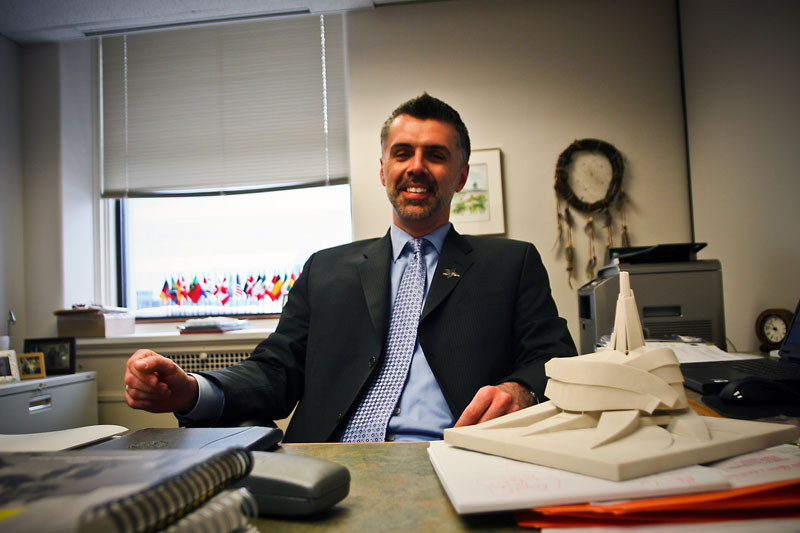U of W partners with human rights museum
Union reawakens skepticism over museum’s integrity
The Canadian Museum for Human Rights launched its first online exhibit at the University of Winnipeg last month, marking the beginning of a partnership between the museum and the university’s Global College.
But some Canadians are reluctant to support an initiative they see as hypocritical, said Damon Johnston of the Fort William First Nation in Thunder Bay.
“It’s hard to be upbeat about it” given the daily human rights struggles of indigenous people involved in prostitution, filling up Canadian jails and fighting to stay alive on the streets, he said.
“It flies in the face of anything real, of any validity,” Johnston said.
According to Marilou McPhedran, principal of the Global College, critics such as Johnston have an important role in making sure the museum influences Winnipeg positively.
McPhedran said Global College will work with the museum to facilitate liaisons with community groups and put the theory of human rights into practice.
“‘Human rights’ are nothing more than words on paper until you translate the essence of those words into improvements in the daily lives that disadvantaged people live,” she said.
Originally the private project of Israel ‘Izzy’ Asper, the museum is now a crown corporation funded by all three levels of government and many private donors, including the Asper Foundation.
According to its chief operating officer Patrick O’Reilly, the museum will cover both historical and contemporary topics regarding human rights in a non-judgmental manner, including issues of gender, ethnicity, sexual orientation and religion.
It will highlight human rights struggles on a local and global scale, critically examining Canada’s role in such situations, whether positive or negative.
“This museum will debate the issues that need to be debated, regardless of controversy,” he said in response to concerns the museum will only focus on issues that correspond with the Aspers’ political stance.
The museum will conduct discussions with diverse groups across Canada this spring, to collect stories and knowledge for exhibits, O’Reilly said.
“The museum’s goal is to educate and inform and make sure that Canadians and others understand the importance of human rights,” he said.
For McPhedran, the Global College’s work with the museum holds the possibility to shift Winnipeg’s identity to a ‘Human Rights City,’ influencing attitudes and decision-making on a local and global scale.
“There is a strong commitment here to do whatever we can to act as a catalyst to make the museum successful, not only for the world but for disadvantaged people in this city,” she said.
Still, for Johnston, until he sees tangible change for his people, the museum is nothing more than a substitute for real action.
“I don’t even know if I’ll ever set foot in the place, honestly,” he said.
Published in Volume 63, Number 16 of The Uniter (January 15, 2009)







